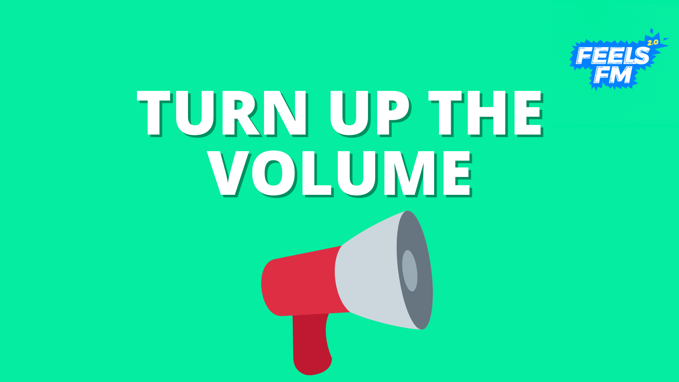Emoji-powered jukebox uncovers impact of mental health stigma Scotland’s young people
Posted by See Me, 3 April 2023

A new report has shown that adults making time to improve their understanding of mental health could go a long way to tackle the stigma which many young people continue to feel.
Our new research delves into the impact of mental health stigma on Scotland’s young people, highlighting a number of key themes around young people’s relationships with adults, especially family, teachers and those they may look to for help and support, such as healthcare professionals.
The data was collected through FeelsFM, the world’s first emoji-powered jukebox. Through the website, young people select an emoji that matches their emotions, then answer a question around mental health stigma before being offered a playlist to go with their mood.
The platform was originally launched in 2018, before being reworked in 2021 to gather further information on young people’s relationships and how the pandemic had impacted on mental health stigma.
The site has been widely used by schools across Scotland as part of our What’s On Your Mind and See Me See Change resources.
Greater understanding
The revamped FeelsFM 2.0 gathered nearly 600 responses, with young people reporting a desire for greater understanding from the adults in their life, more opportunities for open conversation, and encouraged adults to take the time to listen and learn more about mental health to overcome stigma.
Not being taken seriously also emerged as a key theme from the data, with young people sharing adults “shutting down kids’ feelings” and “people can be made to feel their feelings aren’t valid or true”.
FeelsFM users were also asked for examples of how adults can make it difficult for young people to talk about their mental health. A lack of communication, stigma, lack of understanding and being dismissed were all mentioned.
Young people also shared what can help make it easier to talk about mental health. This included a need to feel comfortable having these conversations, knowing how to support one another, and knowing where to get information and support.
When questioned if the Covid-19 pandemic had led to young people’s mental health being taken more or less seriously, young people gave a mixed response. For those who said it was being taken less seriously, they cited issued such as services being more stretched and stigma leading people to people saying that everyone is having a tough time. For those who said it has been taken more seriously, this was down to heightened awareness, more people experiencing isolation and worsening mental health, and people taking the time to check in with others more frequently.
Still barriers
Our director Wendy Halliday said: “The FeelsFM data has shown us that there are still lots of barriers out there preventing young people from reaching out and asking for help from those closest to them – and stigma, and lack of understanding, is one of the biggest.
“The report is really valuable for anyone working with or supporting young people in Scotland today, providing real insight into what life is like for our young people and the impact that the last few years have had on their mental health and their ability to talk about it.”
The report contains a set of recommendations for changes needed, at national level, to improve the lives of young people struggling with their mental health. These include recommendations for families, adults, and related to supporting conversations, including:
- Improved knowledge for adults, including where to help young people get the right help.
- Training in young people’s mental health for adults responsible for young people’s wellbeing should include the impact of stigma, non-judgemental listening, how to support and how to acknowledge what a young person is experiencing.
- Empower families to know how to talk, listen and communicate with young people about how they are feeling.
